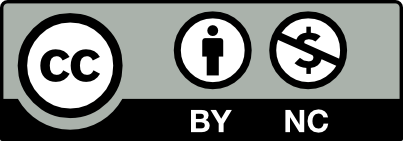Por favor, use este identificador para citar o enlazar este ítem:
http://hdl.handle.net/10609/93206
| Título : | Cost-effectiveness of the mobile application TCApp combined with face-to-face CBT treatment compared to face-to-face CBT treatment alone for patients with an eating disorder: study protocol of a multi-centre randomised controlled trial |
| Autoría: | Anastasiadou, Dimitra Lupiáñez-Villanueva, Francisco Faulí Molas, Clara Arcal Cunillera, Jordina Serrano Troncoso, Eduardo |
| Otros: | Universitat Oberta de Catalunya (UOC) |
| Citación : | Anastasiadou, D., Lupiañez-Villanueva, F., Faulí, C., Arcal Cunillera, J., & Serrano-Troncoso, E. (2018). Cost-effectiveness of the mobile application TCApp combined with face-to-face CBT treatment compared to face-to-face CBT treatment alone for patients with an eating disorder: study protocol of a multi-centre randomised controlled trial. BMC Psychiatry, 18(). doi:10.1186/s12888-018-1664-4 |
| Resumen : | The clinical utility of the existing apps for people with eating disorders (EDs) is not clear. The TCApp has been specifically developed for people with EDs, is based on the principles of Cognitive Behavioural Treatment (CBT) and allows a bidirectional link between the patient and the therapist. The objectives of the study are, first, to assess the clinical efficacy of a combined intervention for Eating Disorders (EDs) that includes an online intervention through the TCApp plus standard face-to-face CBT in comparison to standard face-to-face CBT alone, and second, to examine the cost-effectiveness of the TCApp and identify potential predicting, moderating and mediating variables that promote or hinder the implementation of the TCApp in ED units in Spain. The study methodology is that of a randomised controlled trial combining qualitative and quantitative methods, with a 6-month follow-up. Approximately 250 patients over 12 years old with a diagnosis of an ED from several ED units in Spain will be randomised to one of two different conditions. Participants, their caregivers, healthcare professionals and technical staff involved in the development and maintenance of the application will be assessed at baseline (T0), post-intervention (T1) and at 6 months follow-up (T2). Primary outcome measures will include ED symptomatology while secondary measures will include general psychopathology and quality of life for patients, quality of life and caregiving experience for family caregivers and adoption-related variables for all participants involved, such as perceived usability, user's satisfaction and technology acceptance. For the cost-effectiveness analysis, we will assess quality-adjusted life years (QALYs); total societal cost will be estimated using costs to patients and the health plan, and other related costs. |
| Palabras clave : | trastornos de la alimentación tratamiento rentabilidad mHealth |
| DOI: | 10.1186/s12888-018-1664-4 |
| Tipo de documento: | info:eu-repo/semantics/article |
| Versión del documento: | info:eu-repo/semantics/publishedVersion |
| Fecha de publicación : | 2-may-2018 |
| Licencia de publicación: | http://creativecommons.org/licenses/by-nc/3.0/es/  |
| Aparece en las colecciones: | Articles Articles cientÍfics |
Ficheros en este ítem:
| Fichero | Descripción | Tamaño | Formato | |
|---|---|---|---|---|
| TCApp.pdf | 958,33 kB | Adobe PDF |  Visualizar/Abrir |
Comparte:
 Google Scholar
Google Scholar
 Microsoft Academic
Microsoft Academic
Este ítem está sujeto a una licencia Creative Commons Licencia Creative Commons


